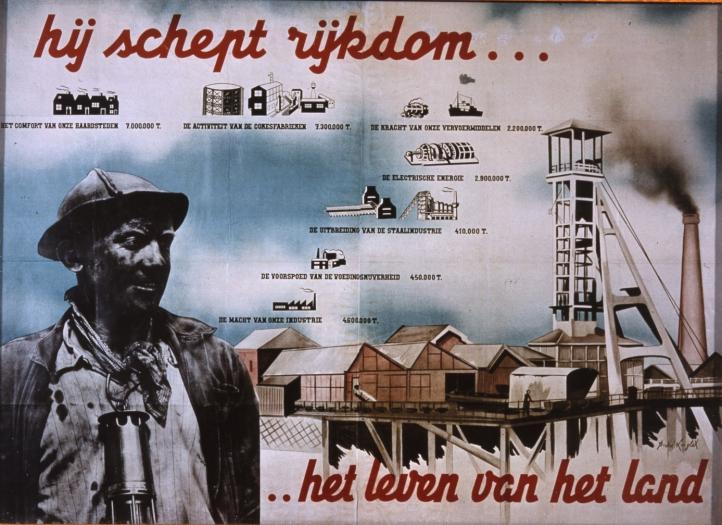The energy crisis: a sense of 'déjà vu'?
CegeSoma Public History Meeting (2022-4)

Conference-debate in Dutch with guest Guy Coppieters (State Archives).
An interview by Dirk Luyten (CegeSoma/State Archives).
After the brief euphoria of the Liberation in September 1944, the war drags on and chaos reigns. Belgium runs out of coal reserves and experiences an unprecedented energy crisis coupled with a harsh winter. In this context, there is a call for a "strong" personality. On 12 February 1945, the Flemish socialist Achille Van Acker becomes Prime Minister. He sets himself up as the "saviour" of the nation. A skilled communicator, he is perceived as a very influential politician. He is remembered as the father of social security, but also as the architect of the "Battle for Coal". But what is it really? Recent research on the coal question challenges this perception. Economically speaking, "Achille Charbon" ("Achille Coal") is not such a great innovator, but rather a man who restores pre-war Belgium. The necessary structural reforms in the coal sector never materialize. The miners pay a heavy social price, while the mining bosses retain control of the sector through a strategy of self-regulation. The political world of that time turns out to be powerless and the energy question remains troublesome for many decades.
CegeSoma invites you to this fourth Public History Meeting where you will delve into this complex period of history that echoes the current difficulties our country is going through regarding energy.
 Guy Coppieters holds a PhD in history. He defended his doctoral thesis at the VUB in 2017. His research focused on power relations in the Belgian coal industry during the first half of the 20th century. Since 2000, he has been an archivist at the State Archives in Brussels, where he works on the opening of political, economic and colonial archives. His current research focuses on the decision-making process at the federal level, especially through the archives of the Council of Ministers and the ministerial committees.
Guy Coppieters holds a PhD in history. He defended his doctoral thesis at the VUB in 2017. His research focused on power relations in the Belgian coal industry during the first half of the 20th century. Since 2000, he has been an archivist at the State Archives in Brussels, where he works on the opening of political, economic and colonial archives. His current research focuses on the decision-making process at the federal level, especially through the archives of the Council of Ministers and the ministerial committees.
Dirk Luyten holds a PhD in history from the VUB. His research interests include social policy and industrial relations, legal history (in particular social and criminal law), the socio-economic history of World War II and the repression of collaboration after WWII.
He coordinates the research sector at CegeSoma.